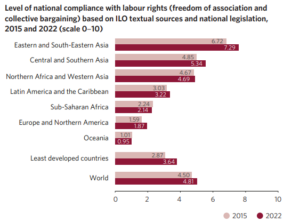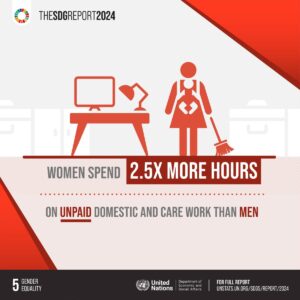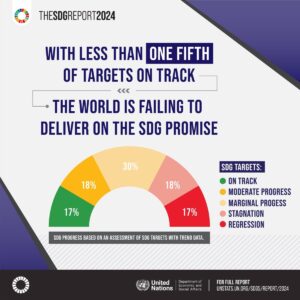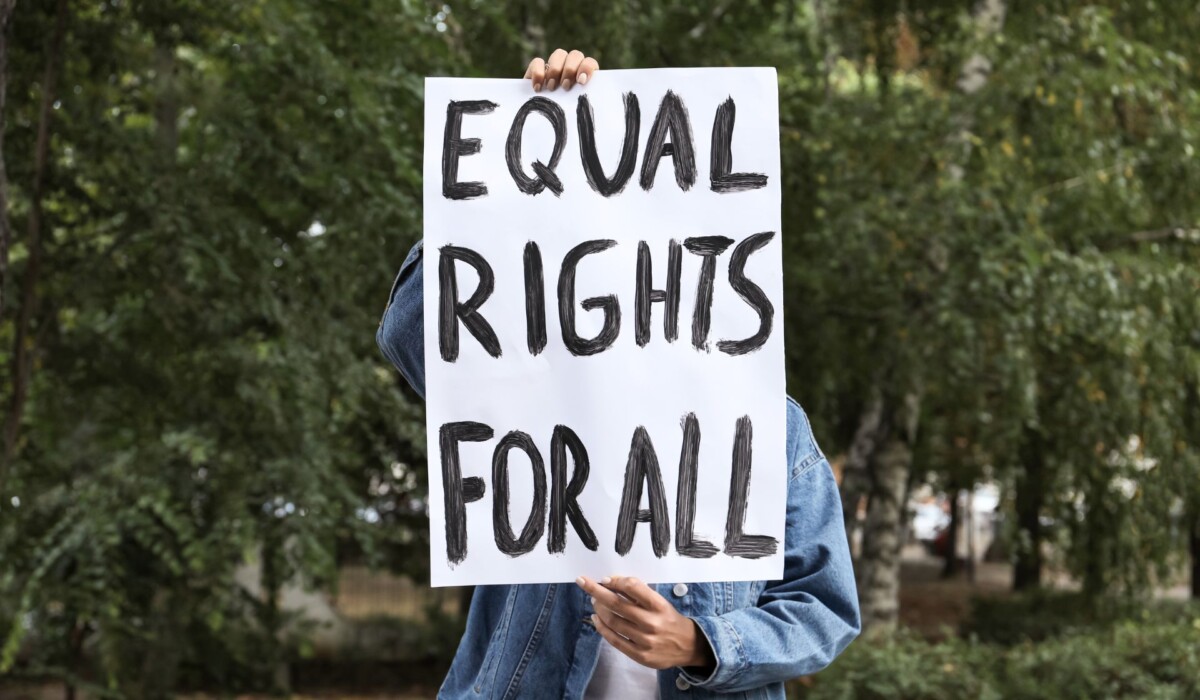1st May: No Sustainability Without Workers’ Rights
1 May is more than just a holiday. It is a call to honor workers. It also demands the rights, dignity, and protections they deserve. Born from labor movements for fair hours and safe conditions, it reminds us of a core truth: there is no sustainability without social justice.
At A Beautiful Green, we partner with organisations that understand this truth. A fair, inclusive economy is key to a sustainable future. This belief aligns with the UN’s Sustainable Development Goals (SDGs). These goals prove that justice, decent work, and human dignity are all essential. And everything starts with how we treat people—workers, suppliers, and communities.
What Are the Sustainable Development Goals (SDGs)?
The Sustainable Development Goals (SDGs) are 17 global objectives. They aim to support prosperity while protecting the planet. All UN Member States adopted them in 2015.
These goals guide corporate sustainability efforts worldwide. However, the social side of sustainability is often overlooked. Workers’ rights, equity, and inclusion are not extras – they are essential to the mission.
How SDGs Relate to Workers’ Rights
SDG 8 – Decent Work and Economic Growth
This goal promotes full employment and inclusive economic growth. It calls for:
- Fair pay and safe work
- Equal job access
- No forced or child labor
- Social protection for all
- Freedom to organize and bargain
According to the 2024 SDG Report: Labour rights are declining worldwide. From 2015 to 2022, global scores worsened. The average dropped from 4.50 to 4.81, where 4.50 represents the best average score in 2015, and 4.81 is the worst recorded in 2022.
This index ranges from 0 (full compliance with labor rights) to 10 (no compliance).

Source: United Nations, The Sustainable Development Goals Report 2024, “Labour Rights Compliance Scores by Region (2015–2022)”
This chart illustrates a downward trend in compliance with labor rights worldwide. Based on 2024 SDG Report, the data reflects weakening protections for workers, especially in freedom of association and collective bargaining.
This decline affects all regions. 33% of International Labour Organisation (ILO) countries reported weaker protections since 2020, including Europe and North America. A key cause is rising restrictions on organizing and bargaining rights.
SDG 5 – Gender Equality
This goal targets workplace gender bias and broader structural inequality. It aims for equal pay, leadership access, and inclusive labor force participation. It also addresses the unpaid care burden that limits women’s access to decent work. Gender equality is vital for a sustainable future, and it ensures that all workers—regardless of gender identity,—can access opportunity and economic independence.
According to the 2024 SDG Report: “Women perform most unpaid care work. This limits their labor market access. It deepens inequality.”
📌 Women do 2.5x more unpaid care work than men. In North Africa and West Asia, the gap is 5x. In Europe and North America, it is 2x.
This unpaid burden blocks women from formal jobs. It is one of the root injustices that 1 May seeks to confront.

Source: United Nations, The Sustainable Development Goals Report 2024
SDG 10 – Reduced Inequalities
This goal fights wage gaps and job discrimination. It addresses barriers across gender, race, disability, and migratory status. It also focuses on reducing income inequality within and among countries. For workers, this means addressing unequal pay, unstable employment, and lack of upward mobility.
1 May represents a global call to confront these structural injustices. It pushes us to build an economy where workers from all backgrounds can access fair opportunities and economic dignity.
SDG 3 & SDG 1 – Good Health and Well-being & No Poverty
These goals focus on access to healthcare, economic security, and the elimination of poverty. Secure, fair, and dignified work is central to both. SDG 3 emphasises mental and physical well-being in the workplace. SDG 1 addresses income security and the structural drivers of working poverty.
1 May reminds us that poverty persists not because people don’t work, but because many jobs lack protections, fair wages, or stability. It urges us to build systems where employment supports full and healthy lives.
According to the 2024 SDG Report:
- In the world’s 75 most vulnerable countries, one in four people lives on less than $2.15 a day.
- Many lack healthcare or basic protection.
📌 1 May reminds us: A good job is a key tool against poverty and for well-being.
Fair Work as the Foundation of a Sustainable Transition
A real sustainable future requires more than carbon cuts. It demands an economy built for people and planet—not only profit.
Stronger labor protections across all sectors, especially in green and digital industries where new risks emerge.
Living wages and safety nets for all types of workers, including informal, gig, and migrant labor.
Democratic workplaces that hear, value, and integrate worker perspectives into decision-making.
Respect and fair pay for all labor, including care work and under-recognised essential services.
Global fairness, so no country or community bears the environmental and social cost of transition alone.
Environmental protections that prioritise people, ensuring that sustainability efforts also improve health, safety, and quality of life.
🌱 Sustainability without fairness—for both people and the planet—is just greenwashing in disguise.
What responsible companies must do now:
Audit labour rights across all operations and supply chains.
Implement living wages, not just minimums.
Include workers in sustainability strategies.
Provide healthcare, job security, and mental health support.
Set, track, and report DEI targets.
Enable safe grievance channels for workers.
Ensure climate-related transitions are just, by protecting jobs and supporting vulnerable workers.
Disclose social impact data transparently, showing how sustainability goals benefit people—not just metrics.
📌 Fair work isn’t a bonus—it’s the base of sustainability.
CSR & Workers’ Rights: A Strategic Alignment
Today, Corporate Social Responsibility (CSR) must go beyond environmental actions or philanthropy. It must be recognised that social justice is a key core pillar of sustainability. Businesses have the power—and the responsibility—to drive progress on workers’ rights.
Strong CSR means:
- Promoting diversity, equity, and inclusion (DEI) across all levels of the company.
- Protecting workers in every supply chain, especially in outsourced and vulnerable sectors.
- Auditing and improving workplace policies for fairness, safety, and well-being.
- Offering training and upskilling to empower long-term, dignified employment.
- Meeting CSRD and CSDDD requirements through transparent and measurable reporting.
- Centering people in ESG strategies and linking success to social performance.
Companies that lead on worker well-being and rights don’t just meet compliance—they build resilient, respected brands in the eyes of employees, consumers, and investors alike.

Source: United Nations, The Sustainable Development Goals Report 2024
1 May Is a Reminder—And a Call to Action
This 1 May let’s move from symbols to substance.
🌱 Sustainability is not just emissions or recycling—it’s about people and planet.
🧩 It’s about rights, dignity, and shared power.
⚖️ It’s about understanding that fairness is a climate solution.
At A Beautiful Green, we’re here to help. Let’s build sustainability that includes everyone.
Because without workers’ rights, there is no sustainable future.
References
[1] United Nations. (2024). The Sustainable Development Goals Report 2024. Retrieved from https://unstats.un.org/sdgs/report/2024/
Elif Ankarali
